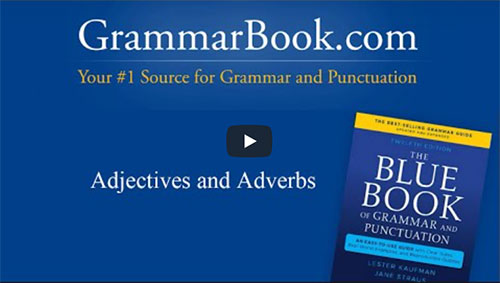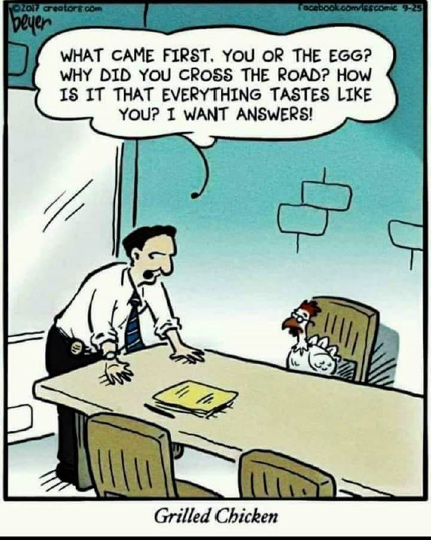|
When to Use (and Not Use) a Comma Before Which
|
|
Writing and speaking in American English often includes the relative pronouns which and that. We use these words to provide essential and nonessential (also known as restrictive and nonrestrictive) information that further explains or identifies.
The distinction between which and that was once more established within daily formal writing. The word which was used for nonessential clauses, and the word that was used for essential clauses.
Examples
Here is the stapler, which will be yours until further notice.
Here is the stapler that will be yours until further notice. |
In the first sentence, which leads a nonessential clause with information that is clarifying but not vital. Removing the clause would not alter what needs to be communicated. We could write only here is the stapler and our main message would still be intact.
In the second sentence, that leads an essential clause identifying one stapler as distinct from others. The clause thereby “restricts” information, and removing it would alter what needs to be communicated. The recipient would not be aware that the stapler is a specific one that could be taken back later.
Within that once more-fixed usage, punctuation was equally set. A nonrestrictive which clause included a comma or commas; a restrictive that clause did not. However, over time which has gained increasing acceptance as both a restrictive and nonrestrictive pronoun in American English, particularly in informal and mass communication.
Examples
Here is the stapler, which will be yours until further notice.
Here is the stapler which will be yours until further notice. |
Here we have which functioning as both an essential and a nonessential marker. This shifts our instrument for understanding the context from the pronoun to the punctuation.
If which is preceded by a comma, it is nonrestrictive. If it is not preceded by a comma, it is restrictive. For those not yet familiar with these precepts, the dual application of which can create hurdles to meaning.
The following guidelines will help you maintain clarity in your writing by knowing when to use a nonrestrictive which clause with an identifying comma before it.
Comma Before Which: Nonrestrictive Clauses
Although popular style may use which both restrictively and nonrestrictively, we as precise writers will aim to maintain the distinction by applying which as a nonrestrictive relative pronoun.
Use one comma before which when the nonessential clause ends a sentence:
| Jermaine has the toolbox, which is mine. |
When the nonessential clause appears in the midst of a sentence, use a comma before and after the which clause.
| Jermaine has the toolbox, which is mine, and he will return it later today. |
Comma Before Which: Prepositional Phrases
The word which is often paired with prepositions. Just a few examples include:
| above which |
by which |
of which |
| at which |
from which |
to which |
| below which |
in which |
upon which |
| beside which |
near which |
with which |
We would not use a comma before or after which when it is part of a prepositional phrase.
Correct: That is the location at which we'll arrive by 7 p.m.
Incorrect: That is the location at, which we'll arrive by 7 p.m.
Correct: To which address should he send this?
Incorrect: To, which address should he send this?
Correct: That is the basis upon which the jury will judge the outcome.
Incorrect: That is the basis upon, which the jury will judge the outcome.
Incorrect: That is the basis upon which, the jury will judge the outcome. |
Comma Before Which: Indirect Questions
The word which commonly opens a direct question (also referred to as an interrogative sentence):
Which way is the bank?
Which dress are you wearing to the dance?
Which bat will Babe use during the game? |
The same questions might also be indirect ones presented as declarative statements. We would not use a comma before which when it is part of an indirect question.
Examples
I asked him which way the bank is.
Brynne wants to know which dress you are wearing to the dance.
The fans are curious which bat Babe will use during the game. |
When the question beginning with which is part of dialogue with preceding attribution, we would include a comma before it:
| I asked, “Which way is the bank?” |
Related Topics
That vs. Which
Restrictive Clause: What Is a Restrictive Clause?
Nonrestrictive Clause: What Is a Nonrestrictive Clause?
|
View and comment on this
article on our website.
|
|
|

|
Pop Quiz
Insert commas wherever they belong with the word which in the following sentences. If a use of which does not require a comma or commas, leave it be.
1. Jessica asked Marlon about the heirloom which has been in his family for centuries.
2. The answer to the question which we'll have tomorrow may surprise all of us.
3. Fatmir asked “Which fact will sway Maribella?”
4. On which day will they hold the auction?
5. Which stain on the rug are you talking about?
|
 |
The Blue Book of Grammar and Punctuation
by Lester Kaufman and Jane Straus |
The Authority on English Grammar! Twelfth Edition Now Available
An indispensable tool for busy professionals, teachers, students, homeschool families, editors, writers, and proofreaders.
Available in print AND as an e-Book! Over 2,000 copies are purchased every month!
To order the book, simply click the link to order the book from the GrammarBook.com website.
|
Free BONUS Quiz for You!
[[firstname]], because you are a subscriber to the newsletter, you get access to one of the Subscribers-Only Quizzes. Click here to take an Irregular Verbs Quiz and get your scores and explanations instantly!
We will be adding many more quizzes this year to our already substantial list of them. If you have suggestions for topics we have not yet covered, please send us a message at help@grammarbook.com.
|
Hundreds of Additional Quizzes
at Your Fingertips
Subscribe now to receive hundreds of additional English usage quizzes not found anywhere else!
Teachers and Employers
Save hours of valuable time! You may assign quizzes to your students and employees and have their scores tallied, organized, and reported to you! Let GrammarBook.com take the hassle out of teaching English!
"Fun to test my skills."
"The explanations really help ... thanks!"
"I can select the quizzes to assign to my students, and then the results are reported to me automatically!"
If you think you have found an error in a quiz, please email us at help@grammarbook.com
|
Wordplay

Pop Quiz Answers
1. Jessica asked Marlon about the heirloom, which has been in his family for centuries.
2. The answer to the question, which we'll have tomorrow, may surprise all of us.
3. Fatmir asked, “Which fact will sway Maribella?”
4. On which day will they hold the auction? No commas
5. Which stain on the rug are you talking about? No commas
|
 |
English In A Snap:
68 One-Minute English Usage Videos FREE |
Learn all about who and whom, affect and effect, subjects and verbs, adjectives and adverbs, commas, semicolons, quotation marks, and much more by just sitting back and enjoying these easy-to-follow lessons. Share them with your colleagues (and boss), children, teachers, and friends as well! Click here to watch.
|
|





